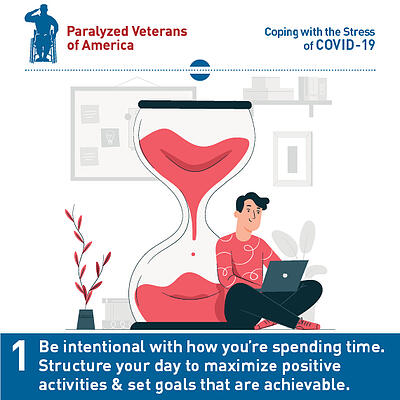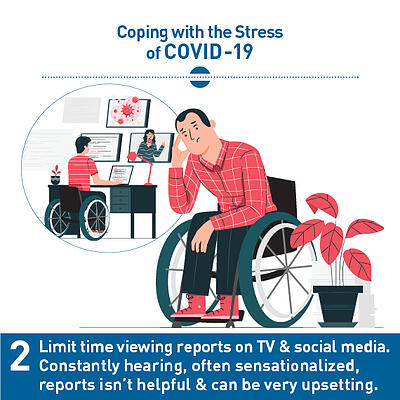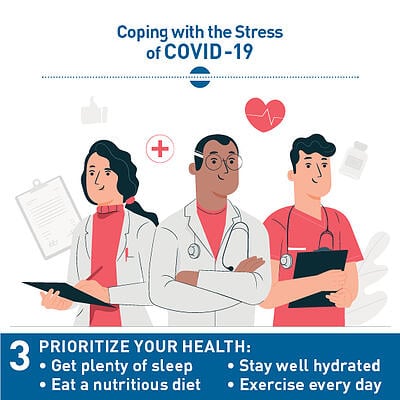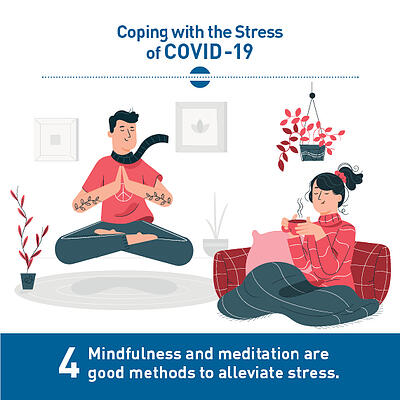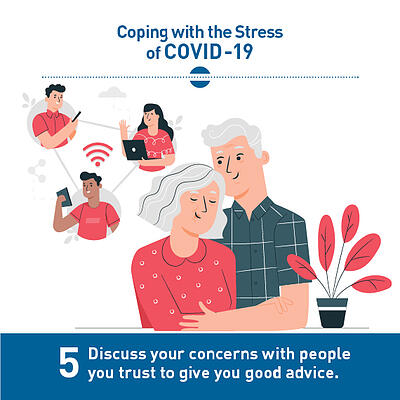Coping with the Stress of COVID-19
Posted By PVA Admin on March 31, 2020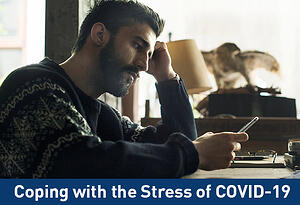 The COVID-19 pandemic is creating a great deal of stress for many. News of the pandemic and the possible dire consequences are being reported constantly and often sensationally. It’s on television, radio, social media and in all the newspapers. The closing of schools, businesses and restaurants along with the cancellation of health appointments, church services and social events is creating turmoil in the lives of many. People are facing a reduction in work hours and even unemployment.
The COVID-19 pandemic is creating a great deal of stress for many. News of the pandemic and the possible dire consequences are being reported constantly and often sensationally. It’s on television, radio, social media and in all the newspapers. The closing of schools, businesses and restaurants along with the cancellation of health appointments, church services and social events is creating turmoil in the lives of many. People are facing a reduction in work hours and even unemployment.
Everyone responds to stressful events as these in different ways. Those with chronic diseases, children, health professionals working to combat the COVID-19, and people with mental health conditions including substance use disorder are more likely to respond stronger to stress. People may experience difficulty sleeping or concentrating. A number of people can experience changes in eating patterns, either not eating enough or binging. Others may increase use of alcohol or use drugs in an effort to self-medicate.
If you are experiencing undue stress or if you notice that a loved one, friend or associate is overly anxious, stressed, or worried, it’s important to acknowledge it and take appropriate steps to improve health. Some of the things you can do for yourself or encourage others to do include:
- Be intentional with how you are spending your time. Structure your day to maximize positive activities and set goals that are achievable.
- Limit the time spent watching reports of the pandemic on TV and social media. Constantly hearing, often sensationalized, reports about the pandemic is not helpful and can be very upsetting.
- Prioritize your health. 1) Get plenty of sleep. Structure a bedtime every night and a wake-up time every morning and stick to it. 2) Eat a nutritious, healthy diet. 3) Stay well hydrated. Skip sugary drink and avoid the excessive use of alcohol. 4) Exercise every day. Cardio exercise is a wonderful stress reducer. Be intentional to regularly set aside time to indulge in healthy activities you enjoy.
- Mindfulness and meditation are good methods to allay stress.
- Discuss your concerns with people you trust to give you good advice.
Most often these measures can help improve stress. If these measures are not effective in adequately reducing the worry and anxiety, it’s important to seek the help of a physician or therapist.
If stress levels become overwhelming to the point it leads to thoughts of hurting yourself or others, immediate action is necessary. Call 911 or the Veterans Crisis hotline 1-800-273-8255. The Substance Abuse and Mental Health Services Administration’s Disaster Stress has a text option. Text TalkWithUs to 66746.
You can find additional resources to help you navigate the COVID-19 pandemic by visiting https://pva.org/covid-19/
We’e in this together. Share the below tips to your social media to raise awareness on best methods to cope with stress.
